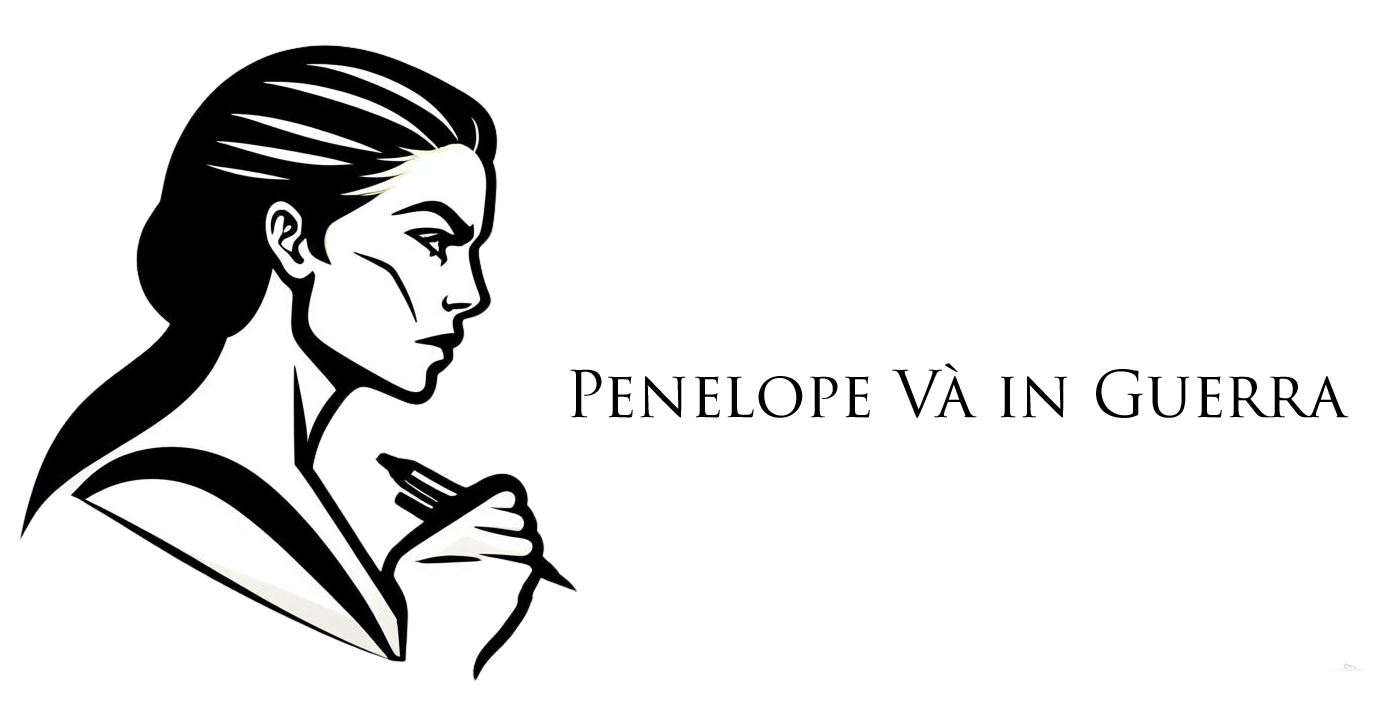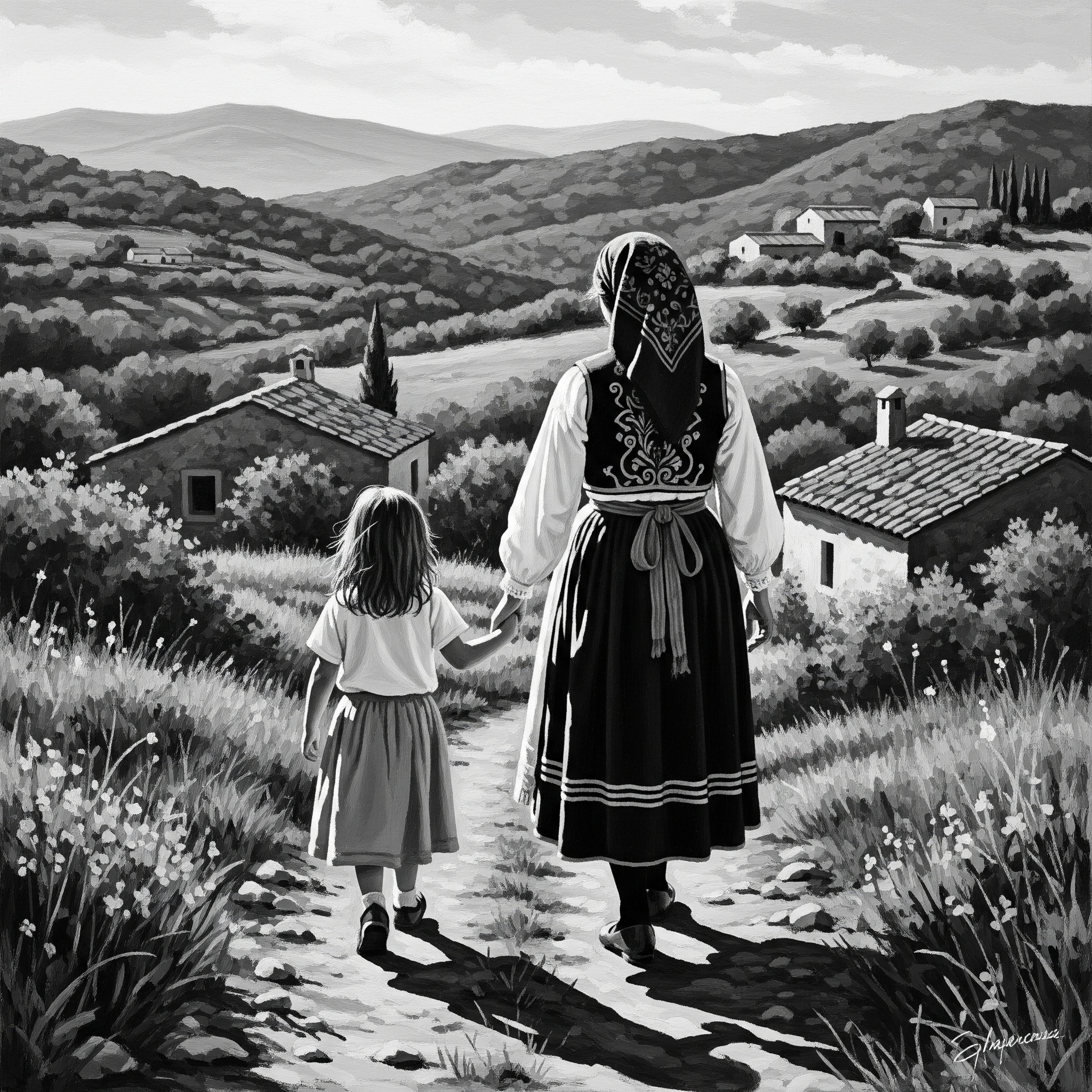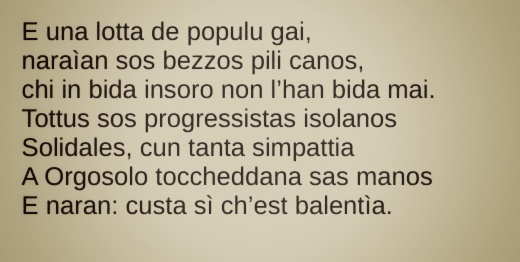None of us ever asked to be born.
Still, there’s a subtle obligation to revere our parents just because they brought us into the world. Whether they’re loving or destructive, authoritarian or empathetic, supportive or toxic, we’re expected to thank them simply for giving us life and we carry that guilt like a debt until we die. But just like parents don’t choose their children, children don’t choose their parents either. That’s why, in some parts of Sardinia, an unborn child is called i strangiu, the stranger.
But in Sardinia, there was a way to escape this “condemnation”: by choosing a second family alongside the biological one. That child would become a fiz’e’anima, literally a child of the soul. No official documents, no forms, no external approvals. Just one crucial thing: the child chooses a second family, and the family chooses their child, based on a feeling that in my village is still called zèniu, mutual respect and affection.
There are at least two fascinating things about this story:
The first is the communal ground where a fiz’e’anima can grow, a space free of individualism, where everyone clearly understood that the best way to raise a child is through shared care. Being a good mother or father didn’t mean doing everything alone. Each person has their own qualities, and what the chosen family can give the child is not seen as a lack from the biological family, but as an enrichment.
The second is the idea of collective responsibility, a nearly tribal concept where children belong to everyone. If one person can’t be there, someone else will be, because people see themselves as part of a community.
At one point in my life, I too was lucky enough to become a modern version of an fiz’e’anima. I was already 18 or 19, going through a hard time. And as someone once said, “when the student is ready, the teacher appears.” Mine appeared, and both my family and I agreed. He never left.
In Germany, there’s a vaguely similar concept (though with many important differences), called Patenschaft. It refers to the relationship between a godparent and a child. It comes from religion, but it can also be a symbolic role chosen by secular families to give a child a reference figure. (In Sardinia, on the other hand, it’s always a spontaneous and secular decision.)
As Germans tend to do, the role of Patentante (godmother) or Patenonkel (godfather) is often made official, either through a signature at the baptism or via a formal secular celebration welcoming that support figure into the family. The main difference is that the godparent is chosen by the parents when the child is still very young. This means the child has no say, so rather than a conscious rebirth, it’s more like emotional insurance (Germans are obsessed with insurance, and I immediately linked Patenschaft to that national urge to insure everything, but that’s just my own theory).
Usually, a German Patentante doesn’t raise the child in a close and daily way like a Sardinian fiz’e’anima would. She plays an important but more subtle role. But not always: a good German friend of mine spent his teenage years living with his Patentante in Portugal. That happened because he wanted to be as far as possible from his parents, with whom he had a difficult relationship.
And this highlights another key difference: in Germany, it’s often a story of escape (my friend ran away from something unbearable), while in Sardinia, relationships with the original family can still be very good, the second family is chosen to add to the idea of family, based on conscious and thoughtful desire.
So yes, there are bonds that go beyond any official vocabulary but mark a person’s life more than a thousand signatures. Sometimes we call them godparents, soul children, or family friends. But deep down, they’re all the same thing: people who take responsibility for us not because they have to, but because they choose to.



